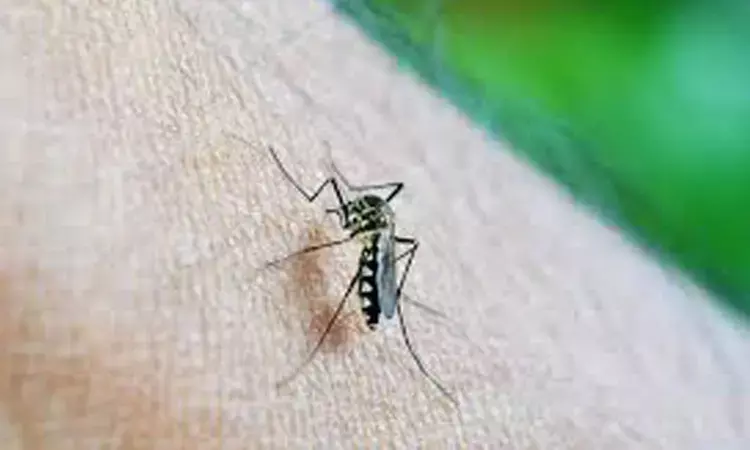- Home
- Medical news & Guidelines
- Anesthesiology
- Cardiology and CTVS
- Critical Care
- Dentistry
- Dermatology
- Diabetes and Endocrinology
- ENT
- Gastroenterology
- Medicine
- Nephrology
- Neurology
- Obstretics-Gynaecology
- Oncology
- Ophthalmology
- Orthopaedics
- Pediatrics-Neonatology
- Psychiatry
- Pulmonology
- Radiology
- Surgery
- Urology
- Laboratory Medicine
- Diet
- Nursing
- Paramedical
- Physiotherapy
- Health news
- Fact Check
- Bone Health Fact Check
- Brain Health Fact Check
- Cancer Related Fact Check
- Child Care Fact Check
- Dental and oral health fact check
- Diabetes and metabolic health fact check
- Diet and Nutrition Fact Check
- Eye and ENT Care Fact Check
- Fitness fact check
- Gut health fact check
- Heart health fact check
- Kidney health fact check
- Medical education fact check
- Men's health fact check
- Respiratory fact check
- Skin and hair care fact check
- Vaccine and Immunization fact check
- Women's health fact check
- AYUSH
- State News
- Andaman and Nicobar Islands
- Andhra Pradesh
- Arunachal Pradesh
- Assam
- Bihar
- Chandigarh
- Chattisgarh
- Dadra and Nagar Haveli
- Daman and Diu
- Delhi
- Goa
- Gujarat
- Haryana
- Himachal Pradesh
- Jammu & Kashmir
- Jharkhand
- Karnataka
- Kerala
- Ladakh
- Lakshadweep
- Madhya Pradesh
- Maharashtra
- Manipur
- Meghalaya
- Mizoram
- Nagaland
- Odisha
- Puducherry
- Punjab
- Rajasthan
- Sikkim
- Tamil Nadu
- Telangana
- Tripura
- Uttar Pradesh
- Uttrakhand
- West Bengal
- Medical Education
- Industry
Australia approves Single-dose Kozenis for malaria in children

Kozenis is a single-dose treatment for the prevention of relapse of P. vivax and was approved for people aged 16 years and older by the TGA in 2018. It should be used with a course of chloroquine to treat the active blood stage infection, thereby achieving radical cure.
New Delhi: Medicines for Malaria Venture (MMV) today announces that the Australian Therapeutic Goods Administration (TGA) has approved the use of single-dose Kozenis (tafenoquine) in children aged 2 years and above in combination with chloroquine for the radical cure (prevention of relapse) of Plasmodium vivax (P. vivax) malaria.
The approval includes a novel, 50 mg dispersible tablet that can be dispersed in water and which was developed by GSK in partnership with MMV to facilitate use in children, who are disproportionately affected by the disease.
"We are proud to have worked with GSK to develop this child-friendly treatment and are thrilled by today's announcement. P. vivax malaria is particularly dangerous for young children for whom repeated relapses can lead to cumulative severe anaemia and, in some cases, be fatal. Today, we have a tool to put a stop to the relentless relapse both for adults and children – we are one step closer to defeating this disease." said Dr David Reddy, Chief Executive Officer, MMV.
Dr Thomas Breuer, Chief Global Health Officer, GSK, said: "We are delighted by this approval of Kozenis for paediatric populations. This achievement is testament to the dedication of GSK scientists and our partner MMV, who all worked tirelessly so the first relapse prevention treatment for P. vivax malaria in more than 60 years can be made available to the most vulnerable in society, our children."
The submission was supported by a Phase 2b clinical study (TEACH) that evaluated dosages of tafenoquine based on weight for children between the age of 2 years, and weighing at least 10 kg, and up to 15 years.
Kozenis is a single-dose treatment for the prevention of relapse of P. vivax and was approved for people aged 16 years and older by the TGA in 2018. It should be used with a course of chloroquine to treat the active blood stage infection, thereby achieving radical cure.
The current standard of care for prevention of P. vivax relapse requires a 7- or 14-day course of treatment with a drug called primaquine and at present there are no quality-assured, age-specific paediatric formulations marketed.
P. vivax malaria is estimated to cause between 4.1 and 5.1 million clinical infections every year, and poses a disproportionate burden for children aged 2 to 6 years who are four times as likely as adults to be infected. The clinical features of P. vivax malaria include fever, chills, vomiting, malaise, headache and muscle pain, and in some cases, can lead to severe malaria and death.P. vivax malaria infections also impact a child's development and educational progress with evidence showing that children who experience repeated P. vivax infections are likely to suffer from physical and cognitive impairment.
Read Also - Malaria vaccine and antimalarial drugs combo may reduce malaria deaths in kids by 73%: Study
Medical Dialogues Bureau consists of a team of passionate medical/scientific writers, led by doctors and healthcare researchers. Our team efforts to bring you updated and timely news about the important happenings of the medical and healthcare sector. Our editorial team can be reached at editorial@medicaldialogues.in.


